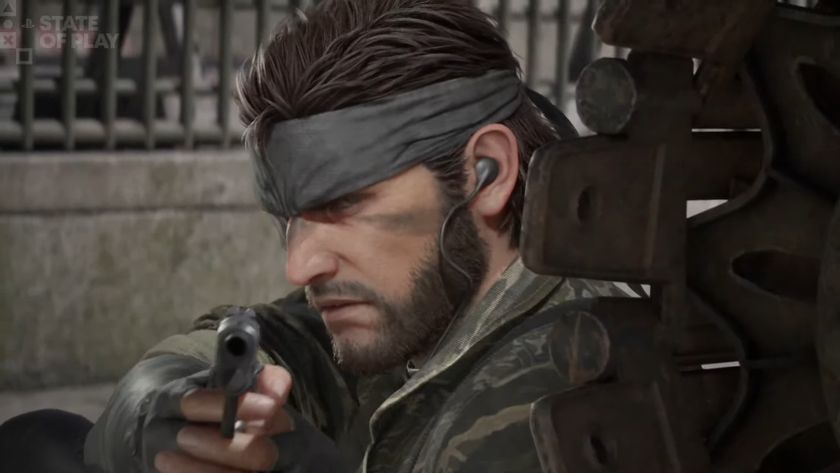Starfield is delayed, but what do we actually want from it?
Exploring the possibilities
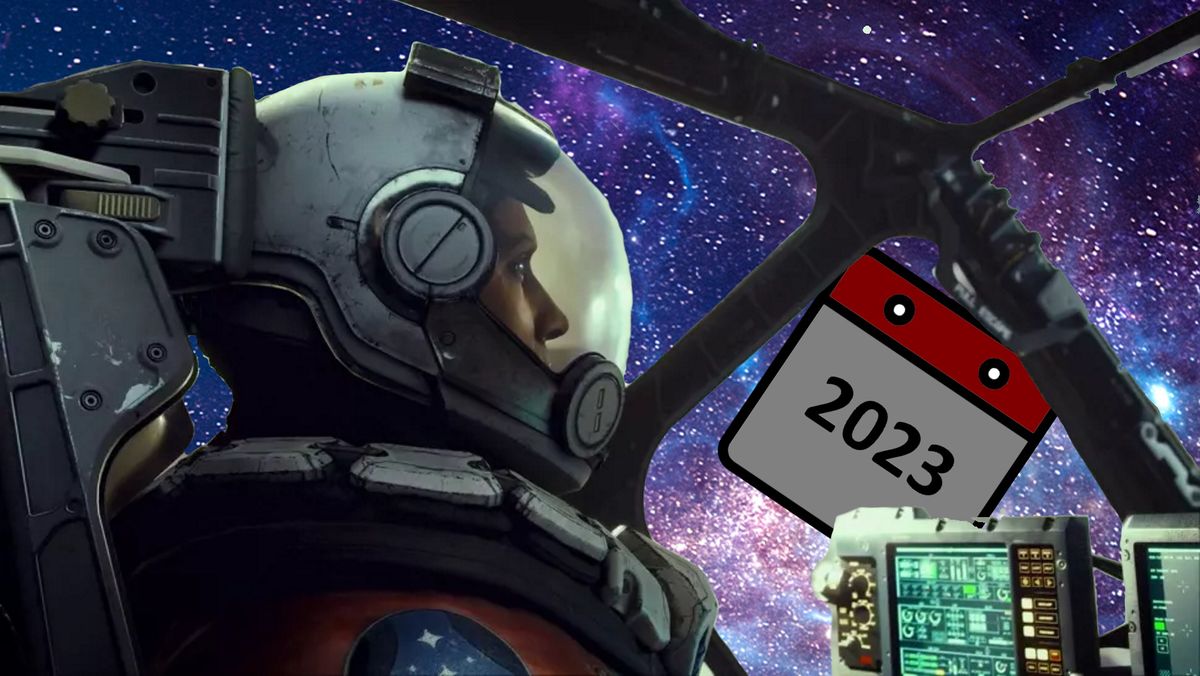
Starfield is the latest casualty of summer release-date rollbacks, meaning Bethesda's sci-fi epic won't land until 2023 -- scream into the void at will. But more important than the arrival date is a far more complex question: what do we really want to see from Starfield when it does finally take flight?
The game maker openly states that "Starfield is the first new universe in 25 years from Bethesda Game Studios," That's an entire Gen-y person -- incidentally, many of the people Bethesda wants playing Starfield. The company has spent years iterating on the Elder Scrolls – and more recently, Fallout – but the last swipe it took at space and sci-fi proper was an Atari Jaguar game from 1999.
With the concept art and details teased so far, we know the aesthetic Starfield is going for: a sort of NASA-punk look that stretches a late 60's/early 70's vibe into the distant future of 2330. But other than the aesthetic and some tidbits about the lore of 'The Settled Systems' and their associated factions, the world is still in the dark about what we'll be doing in Starfield.
And that makes my mind run to a big question:
What do we really want from Starfield?
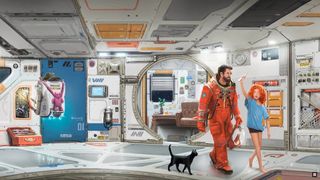
Starfield isn't coming in with the same expectations as a new Fallout or Elder Scrolls game. It doesn't get to stand on the rafters of the house that Morrowind and Skyrim built, reaching for new heights for people of all ages. But it also won't struggle under the shadow of Fallout New Vegas – which was developed by the team at Obsidian Entertainment and only published by Bethesda, and is regularly touted as superior to any of Bethesda's entries in the series.
Instead, Starfield has to start fresh, and show us moments – whether through the mediums of story, gameplay, or graphics – that will give us shiny new expectations for this new setting.
So what do we want to see from Starfield?
Get daily insight, inspiration and deals in your inbox
Sign up for breaking news, reviews, opinion, top tech deals, and more.
Wonder and curiosity
I can only speculate what the planets of Starfield will look like. The concept art that the team at Bethesda has shared so far suggests a colorful variety of sights to take in, with everything from barren, rocky spheres of dirt that evoke our own moon to dense jungles full of megaflora, like an entire globe dipped in glue and rolled in the Amazon rainforest. Maybe each planet will have its own quirks, from differences in gravity to unpredictable pulsars shedding dangerous radiation to corrosive atmospheres -- or entire lakes of liquid diamond sparkling with deadly beauty.
Picture an entire globe dipped in glue and rolled in the Amazon rainforest.
But what I know is that planets have to be as much a character as any voice-acted member of the cast. Each new planet needs to drag me to the edge of its version of the Grand Canyon by the hair and say: 'You simply have to see this!' Each of Starfield's planets should leave me torn between different desires, whether to discover its secrets, flee its dangers, conquer its challenges, or maybe most important of all, to blast off in search of the next one.
I'm Kirk, dammit. Make me enjoy boldly going.
Each glittering city, ruined alien monolith, derelict starship, and bizarre scientific anomaly that Starfield contains needs to draw me in to sate my curiosity. But once it has me, Starfield needs to keep me there by making my exploration lead to gameplay.
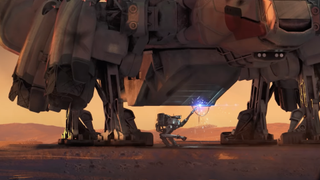
Variety, variety, variety
I want to go back to a time before every FPS-RPG had to have a slight variation on the same lockpicking and computer hacking minigames. Starfield has to sidestep the humdrum approach and take its ideas from games that bust out of the mold. Bypass the temptation to make everything a minigame, and simply make a plain old check of whether your skill is high enough. Or even better, create narrative checks like Disco Elysium - where a roll against your stat determines how the encounter goes, but also prompts you to make further decisions regardless of whether you've succeeded or failed.
Above all other things, space flight and combat have to be activities that don't become chores once their initial novelty wears off. Collecting guns with slightly higher damage numbers and yet another cover shooter aren't what Starfield needs if it wants to be something besides -- as executive producer Todd Howard described it -- "Like Skyrim in space."
Putting Skyrim's gameplay in a star-speckled ballgown won't move the needle.
Putting Skyrim's gameplay in a star-speckled ballgown won't move the needle for me, Starfield. Try harder. Bethesda's offerings are often attacked as being 'broad as an ocean, but as deep as a puddle' -- and if there's ever a time to defy that expectation, it's with an expansive sci-fi about exploration and wonder.
Starfield needs to bring me engaging decisions when designing my character as well. It needs to make me want to play every different set of skills and type of build to see just how interesting Starfield's galaxy is from a different perspective. Maybe I want to be a fast-draw pirate gunslinger that lies as well – and fast – as I pull my laser pistol. But maybe I also want to be a down-on-my-luck engineer who scavenges wrecked ships for every last rusted component to tinker with or trade for my next meal of freeze-dried nutrient paste.
And Starfield should probably talk about why my character has to steal or scrape to survive.
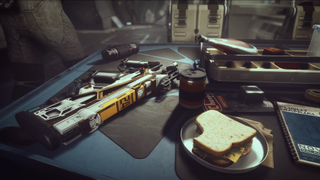
Say something important
Progress, both societal and technological, is at the heart of science fiction as a genre. In the 1960's, Star Trek smashed racial and social barriers by showing us visions of a future where society was united, empathic, and multicultural. In the same decade, Ursula K. Le Guin's novel Left Hand of Darkness contemplated how society and gender intersect through the lens of a futuristic alien species.
There are video games that fit the same bill, making commentary central to their narrative or weaving it into the fabric of their setting. The Oddworld series tackles consumerism and capitalism with deft – and dark – humor, following your attempts to save your alien race from becoming steak dinners for their corporate overlords. Bethesda even has its own example already, with the Fallout series and its satire of everything from jingoistic propaganda to nuclear proliferation and war, all worked deep into its setting.
Starfield doesn't need to be a satire to tackle things that we struggle with as people, but it does need to examine how it presents a futuristic tale it describes as about "hope and humanity". Science and space has inspired everything from the earliest writers and creators to the most daring scientists of the last century. So if Starfield is going to cut itself from NASA's cloth, it isn't anything strange to expect it to show up sporting NASA's idealism and values as well.
...and what will we probably get from Starfield?
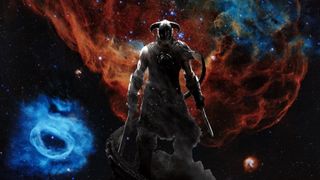
Skyrim in space. We all knew this is where it was going. It's what Todd Howard said from the very beginning when he spoke to the Washington Post.
But hey, Skyrim was pretty fun. It's just not what Starfield could be.

Sarah (She/Her) is a contributor and former Senior Writer for TechRadar Gaming. With six years of experience writing freelance for publications like PC Gamer, she's covered every genre imaginable and probably a few she made up. She has a passion for diversity and the way different genres can be sandboxes for creativity and emergent storytelling, and loves worldbuilding. With thousands of hours in League of Legends, Overwatch, Minecraft, and countless survival, strategy, roguelike, and RPG entries, she still finds time for offline hobbies like tabletop RPGs, wargaming, miniatures painting, and hockey.
Most Popular




